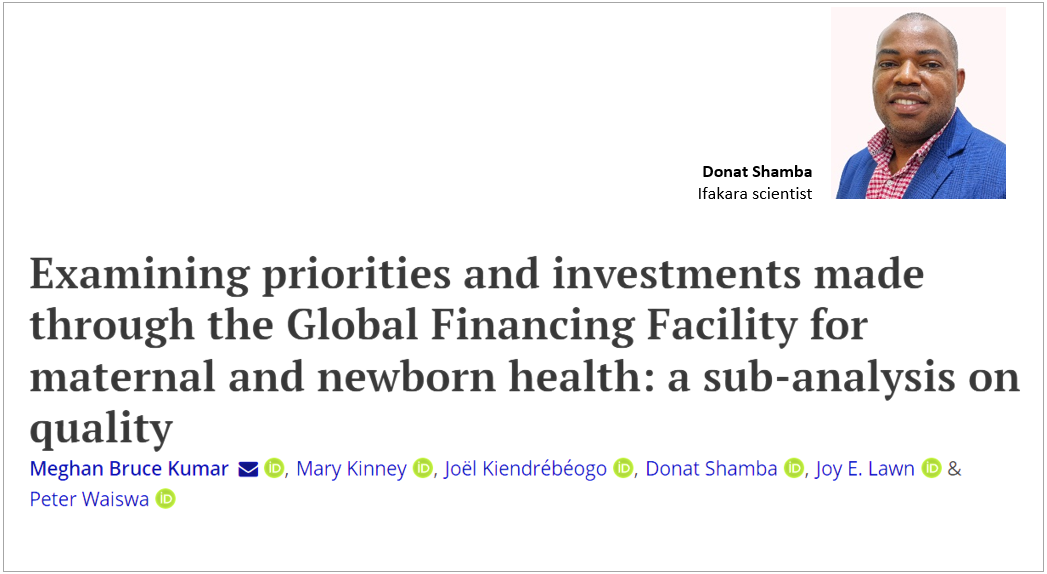
QUALITY CARE: Transforming maternal, newborn health with integrated, person-centered care

Each year, around 4.5 million mothers and newborns die or are stillborn worldwide. To reduce these deaths, scientists stress the importance of improving both the coverage and quality of healthcare. They recommend addressing multiple dimensions of care quality, including structural, technical, and person-centered aspects, across all stages of maternal and newborn health.
One major initiative working to tackle this issue is the Global Financing Facility (GFF), which aims to catalyze the national scale-up of maternal and newborn health (MNH) interventions through focused investments that ‘ensure all women, children and adolescents can survive and thrive’. However, scientists have raised concerns about whether these investments are effectively improving both the reach and quality of care.
A recent analysis of GFF-related documents from 11 African countries sheds light on this issue. Published on the Global Health Action journal, the analysis highlights significant gaps in the GFF’s efforts, especially in patient-centered care and newborn-specific interventions.
The study was co-authored by scientists from academic and research institutions across the UK, South Africa, Burkina Faso, Tanzania, and Uganda, including Ifakara Health Institute’s senior research scientist, Donat Shamba.
Gaps in quality of care identified
The study revealed that while GFF-related documents mention improving MNH care quality, they lack clarity on what "quality" truly entails. Many documents focus on the clinical dimension of care, such as maternal health services, but overlook critical aspects of quality as defined by the World Health Organization (WHO), such as newborn care and patient experience.
Explaining the WHO’s framework, the scientists wrote, “The WHO has clearly defined their vision for MNH care as ‘every pregnant woman and newborn receives quality care throughout pregnancy, childbirth and the postnatal period’, a vision operationalized through two main pillars – provision of care and experience of care- in a quality framework linked to a monitoring framework and recommended indicators.”
Limited focus on newborn care, patient experience
The analysis, which reviewed 25 GFF-related documents, found that most focused on improving service delivery by integrating clinical quality with health system strengthening. However, critical elements like respectful, person-centered care and family-centered newborn care were often overlooked in investment plans, representing a significant gap in comprehensive MNH quality.
In response to these findings, the researchers made key recommendations for the GFF to enhance its impact. These include prioritizing newborn care through interventions like Kangaroo Mother Care and other essential newborn health strategies, ensuring care is patient-centered respectful and family-centered, and adopting a diagonal approach – investing in specific MNH needs while continuing to strengthen overall health systems and address the gaps effectively.
“In all settings, a focus on multi-dimensional quality covering structural, technical and person-centredness aspects along all stages of the maternal and newborn care is critical for ending preventable maternal and newborn deaths and stillbirths and reducing related morbidities,” the authors noted.
The way forward for GFF health investments
Despite the identified gaps, the GFF plays a critical role in improving maternal and newborn health globally. The scientist suggests that the GFF can better link health system improvements with enhanced care for mothers and newborns by focusing on all dimensions of quality care – technical care, system improvements, and patient experience.
“The analysis underscores the need for more diagonal approaches to address the highest impact interventions for maternal and newborn health and the need to focus on person-centered care within the Global Financing Facility related processes for the investment to have maximum impact,” the scientists concluded.
Read the publication here.
